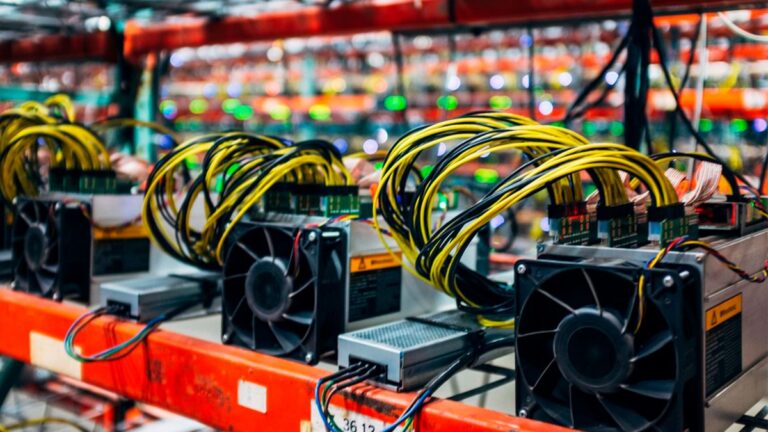How Altcoins Work?
Altcoins are cryptocurrency alternatives to Bitcoin. They’re often referred to as “Bitcoin alternatives” since most altcoins hope to either improve upon or replace Bitcoin in some way. For example, Litecoin aims to provide faster transaction confirmations (2.5 minutes on average) than Bitcoin (10 minutes on average). Ethereum, meanwhile, focuses on running the programming code of any decentralized application.
There are over 4,000 different types of altcoins currently available on the market, and more are being created every day. While some investors believe that altcoins have the potential to eventually overtake Bitcoin as the leading cryptocurrency, it’s important to remember that there can only ever be 21 million Bitcoins in existence – but there is no limit to how many altcoins can be created.
Types of Altcoins
There are two types of altcoins- those that are forks of Bitcoin, and those that are not. Bitcoin forks are altcoins that have been created by changing the Bitcoin code in some way. These changes can be minor, such as modifying the block size, or major, such as adding new features to the coin. Non-forked altcoins are those that have been created from scratch and do not share any code with Bitcoin. Both types of altcoins can be traded on cryptocurrency exchanges.
How do Altcoins Work?
Altcoins are digital assets that are alternative to Bitcoin. They use different algorithms for their Proof of Work (PoW) or Proof of Stake (PoS) consensus mechanisms. Some popular altcoins are Ethereum, Litecoin, and Monero. While Bitcoin is the most well-known cryptocurrency, altcoins offer a wider range of features and functions.
When it comes to how altcoins work, it is important to understand the differences between them and Bitcoin. For one, altcoins tend to be more volatile than Bitcoin. This is because there is usually less buying and selling activity in the altcoin markets compared to the Bitcoin market. Secondly, altcoins often have shorter block times than Bitcoin. This means that transactions on the blockchain are confirmed faster on altcoins than on Bitcoin. Altcoins often have different mining rewards than Bitcoin. For example, Ethereum miners are rewarded with Ether, which is the native cryptocurrency of the Ethereum network.
In general, altcoins work by providing an alternative to Bitcoin that may offer more features or be more suitable for specific use cases. When choosing an altcoin, it is important to do your research to make sure that the coin is reputable and has a strong community backing it.
Pros and Cons of Using Altcoins
When it comes to altcoins, there are a few pros and cons to consider before using them. On the plus side, altcoins can offer a wider range of features and functions than Bitcoin. They may also be more accessible and easier to use for some people. On the downside, altcoins may be less stable and more volatile than Bitcoin, and their value can fluctuate quite a bit.
Steps to Buy and Trade Altcoin
Assuming you already know what Bitcoin is, buying and trading altcoins works in a very similar fashion. The first step is to find a reputable exchange that trades in the currency you want to buy. Once you have found an exchange, you will need to set up an account and deposit some funds.
Once your account is funded, you can start buying and trading altcoins. Most exchanges offer a variety of order types, which allows you to tailor your trading strategies. For example, you can place a limit order, which allows you to buy or sell a currency at a specified price. Alternatively, you can place a market order, which will execute your trade at the current market price.
If you want to trade more actively, you can also place orders for immediate execution (known as day orders). However, these orders are subject to higher fees. Before placing any orders, be sure to check the fee schedule of the exchange to avoid any surprises.
When buying or selling altcoins, the most important thing is to stay informed about the latest news and developments in the market. This way, you can make informed decisions about when to buy or sell. There are a variety of ways to stay up-to-date on the latest news, including following crypto news websites and Twitter accounts dedicated to altcoin trading.
Recommended Readings:https://tradingalts.com/where-and-how-to-buy-altcoins/
What makes altcoins different from Bitcoin?
The key difference between altcoins and Bitcoin is that altcoins are built on different blockchain technologies than Bitcoin. While Bitcoin uses a Proof-of-Work (PoW) consensus algorithm, most altcoins use a Proof-of-Stake (PoS) or a hybrid PoW/PoS algorithm. This means that altcoins can offer different features than Bitcoin, such as greater scalability or faster transaction speeds.
Why are altcoins popular?
Altcoins are popular because they offer investors an opportunity to invest in a new and potentially lucrative cryptocurrency market. Many people believe that the cryptocurrency market will continue to grow in the years to come, and so investing in altcoins now could lead to big profits down the line.
Common Mistakes to Avoid When Trading Altcoins
When trading altcoins, it is important to avoid common mistakes that can lead to losses. Here are some common mistakes to avoid:
- Not Doing Your Research: It is important to do your research before investing in any coin. You should understand the technology behind the coin, the team behind it, and the market conditions.
- FOMO: Fear of missing out is a major factor in many people’s investment decisions. Do not make investment decisions based on FOMO, as this can lead to buying coins that are overvalued or investing in scams.
- Overly Optimistic Expectations: Have realistic expectations when investing in altcoins. Many people expect to make 1000% returns overnight, but this is rarely the case. Understand that investments can go up and down, and be prepared for both scenarios.
- Invested without Understanding How to Trade: Trading cryptocurrency can be complicated and requires understanding technical analysis and charting. If you do not understand how to trade, you should not invest in altcoins (or any other asset for that matter).
- Not Diversifying Your Portfolio: When investing in altcoins (or any other asset), it is important to diversify your portfolio. This means investing in different coins so that you are not putting all of your eggs in one basket.
Conclusion
Altcoins are a great way to diversify your cryptocurrency portfolio and have the potential to generate significant returns. While investing in altcoins is risky, with proper research and due diligence, you can greatly increase the chances of success.
We hope this article has given you an in-depth look at how altcoins work and provided some insight into what factors to consider when deciding which ones might be worth investing in. Good luck.






